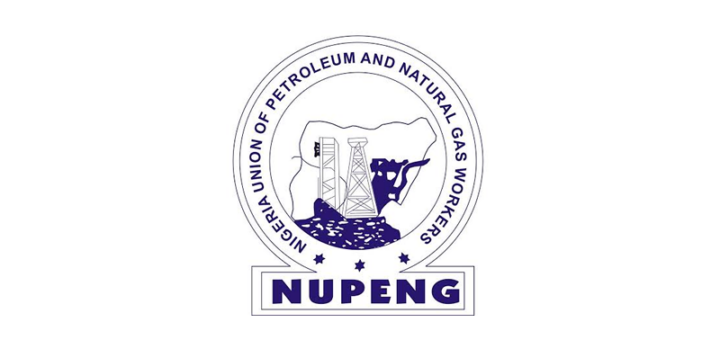The Nigeria Union of Petroleum and Natural Gas Workers (NUPENG) has suspended its planned nationwide strike after reaching an agreement with the Dangote Group on key labour-related demands. The move, announced late Tuesday, comes as a major relief to Nigerians who had feared fresh disruptions in the supply and distribution of petroleum products across the country.
NUPENG had earlier issued a notice of strike, citing unresolved grievances over conditions of service, welfare of tanker drivers, and the treatment of some of its members allegedly affected by contractual disputes. The union warned that if its demands were not addressed, it would direct its members to withdraw services, a step that could have triggered fuel shortages and economic disruptions.

However, following a series of intensive negotiations between NUPENG leaders and representatives of the Dangote Group, the parties announced a breakthrough. According to union officials, the Dangote Group agreed to review employment conditions, address welfare concerns, and implement safety measures for petroleum tanker drivers working within its operations.
In a statement, NUPENG President Prince Williams Akporeha confirmed the suspension of the strike, noting that the decision was taken after careful consultation with members and in recognition of the commitments made by the Dangote Group. He emphasised that the union would continue to monitor compliance closely, warning that any failure to implement the agreement could result in renewed industrial action.
“The leadership of our great union has resolved to suspend the planned strike following assurances and commitments from the Dangote Group to meet our key demands,” Akporeha said. “This decision is in the interest of Nigerians and our members, who play a critical role in sustaining the economy through petroleum distribution.”
The Dangote Group, in its response, expressed appreciation to NUPENG for engaging in constructive dialogue rather than confrontation. The company pledged to uphold the agreements reached, stressing its commitment to maintaining a harmonious relationship with workers. A senior company executive noted that the group values its partnership with organised labour and recognises the vital role of petroleum workers in ensuring stability in the sector.
The suspension of the strike has been widely welcomed by government officials, industry operators, and citizens. The Ministry of Labour and Employment, which facilitated part of the negotiations, commended both sides for choosing dialogue over disruption. The ministry described the resolution as an example of how industrial disputes can be resolved amicably when stakeholders act with sincerity and focus on national interest.
Analysts say the development underscores the importance of labour relations in Nigeria’s oil and gas sector. Previous strikes by NUPENG and its sister union, the Petroleum and Natural Gas Senior Staff Association of Nigeria (PENGASSAN), have often triggered fuel queues, disrupted transport, and worsened inflationary pressures. The avoidance of a strike this time, they argue, will help sustain economic stability at a time when Nigerians are already dealing with high living costs.
For tanker drivers, one of the key groups represented by NUPENG, the agreement is expected to bring improvements in welfare, safety, and conditions of service. Many drivers have long complained about long hours, security risks on highways, and inadequate support from employers. NUPENG had insisted that addressing these concerns was critical not just for workers’ rights but also for safety on the roads and efficiency in petroleum distribution.
Economic experts point out that the timing of the agreement is significant. With the Dangote Refinery gradually scaling up operations, maintaining industrial harmony within the group’s workforce and supply chain is vital. The refinery, projected to reduce Nigeria’s dependence on imported fuel, relies heavily on the cooperation of petroleum workers and unions for smooth operations. Any prolonged disruption could have slowed its impact on fuel availability and pricing.
Citizens, too, have expressed relief at the suspension of the strike. Many Nigerians had braced for the possibility of long fuel queues, panic buying, and transport cost hikes had the industrial action gone ahead. For ordinary households already grappling with inflation, such an outcome could have worsened economic hardship.
Observers, however, caution that the resolution must be followed by tangible actions. NUPENG has a history of calling off strikes after reaching agreements, only for disputes to resurface when implementation falters. Union leaders have already signalled that they will remain vigilant to ensure that the Dangote Group honours its commitments in full.
In the broader picture, the episode highlights the ongoing challenges of industrial relations in Nigeria’s oil and gas sector. Experts argue that until structural issues such as casualisation, safety concerns, and inadequate welfare provisions are systematically addressed, disputes between unions and employers will continue to arise. They recommend stronger enforcement of labour laws, transparent collective bargaining processes, and proactive engagement by government regulators.
For now, though, the suspension of the strike offers a reprieve to citizens and businesses. Petrol stations remain open, supply lines are uninterrupted, and economic activities continue without the disruption of fuel scarcity. Both NUPENG and the Dangote Group have been urged to see the agreement not as an end but as a foundation for a stronger, more collaborative relationship going forward.
As negotiations transition into implementation, all eyes will be on whether the commitments made translate into lasting improvements for workers. If successful, the resolution could serve as a model for future engagements between unions and employers in Nigeria’s vital oil and gas industry.
Support InfoStride News' Credible Journalism: Only credible journalism can guarantee a fair, accountable and transparent society, including democracy and government. It involves a lot of efforts and money. We need your support. Click here to Donate
